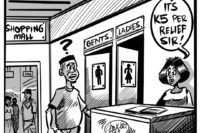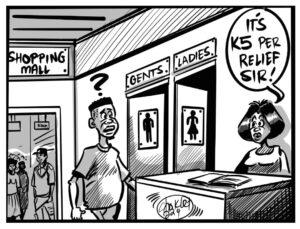The National Democratic Congress (NDC) has asked President Edgar Lungu to ultimately reject Zesco’s proposal to upwardly adjust electricity tariffs by 91 per cent, saying the cost of living is already high.
On March 9, 2019, Zesco applied to the Energy Regulation Board (ERB) to revise retail electricity tariffs upwards and among the proposals was the downward adjustment of the lifeline tariff from 200kwh to 100kwh and elimination of the monthly fixed charge for residential and commercial customers.
Zesco Spokesperson Henry Kapata explained at the time that the proposed tariff adjustment was triggered by the prevailing economic conditions such as the rise in the prices of goods and services and fluctuation of the Kwacha against major convertible currencies like the United States Dollar, which he said had contributed to the utility’s increased operational costs.
But on May 4, 2019, President Lungu directed the Ministry of Energy to defer Zesco’s tariff review application to the Energy Regulations Board after wide consultations with stakeholders.
Energy Minister Mathew Nkhuwa who announced the development, explaining that the President had listened to concerns raised by various stakeholders and members of the public and further advised all concerned institutions to accordingly suspend the tariff review processes with immediate effect.
But in a statement, Copperbelt NDC Chairperson Chipoka Mulenga challenged President Lungu to simply overrule the application, saying merely suspending it meant he was just delaying it for the time being.
“It makes good headlines when we hear of President Edgar Lungu suspending the tariff increase application by Zesco. However, it leaves some desirables. Suspension means the matter is still under discussion but temporarily delayed and a decision to be made at a later date. This can either be an acceptance or rejection of tariffs increase. For this cause, as NDC Copperbelt, we request that President Lungu ultimately rejects the proposed increase. The cost of livelihood in Zambia is becoming increasingly high by the day. Worse with the continued bad performance of the Kwacha,” Mulenga stated.
Mulenga asked government to diversify sources of energy so that the country would not have to rely on hydro power.
“With the increasing demand of energy in Zambia, the government must consider encouraging the use of renewable energy sources like solar, biogass and wind power. Zambia is blessed with sunlight and environment to create solar panels, therefore, such material must be made locally to create business opportunities and entrepreneurship to locals that will partner with already established foreign business houses. GRZ must scrap off taxes on renewable energy source import and encourage the establishment of renewable industries in Zambia that will not only create decent pensionable jobs for Zambians but also lessen the burden on Power demand of the grid system from Kariba,” he stated.
Meanwhile, Mulenga also called on the President to intervene in the revision of mealie-meal prices.
“Since President Lungu has demonstrated to be with the ultimate power to better or worsen the living standards for Zambians, we ask him to consider reducing the fuel pump price and cost of mealie-meal. It’s unacceptable to have Zambians failing to afford to buy a bag of the staple food and settle for plastic repackaged (Pamela) mealie-meal. The president must also be consistent with his pronouncements, in 2016, prior to the general elections, to the appeasement of the farmers, he increased the maize flow price from K60 to K85. But just after winning the elections, in 2017, FRA reduced the commodity price to which he refused to intervene claiming as president he has no interference in FRA decisions. The other day he intervened in ERB that, that proposal must be rejected and he must not u-turn when the increase is effected. So as the man with ultimate power, we ask him to reduce the cost of fuel pump price and cost of mealie-meal. He should also consider improving the conditions of service in the civil service, mining and agricultural sectors,” stated Mulenga.












